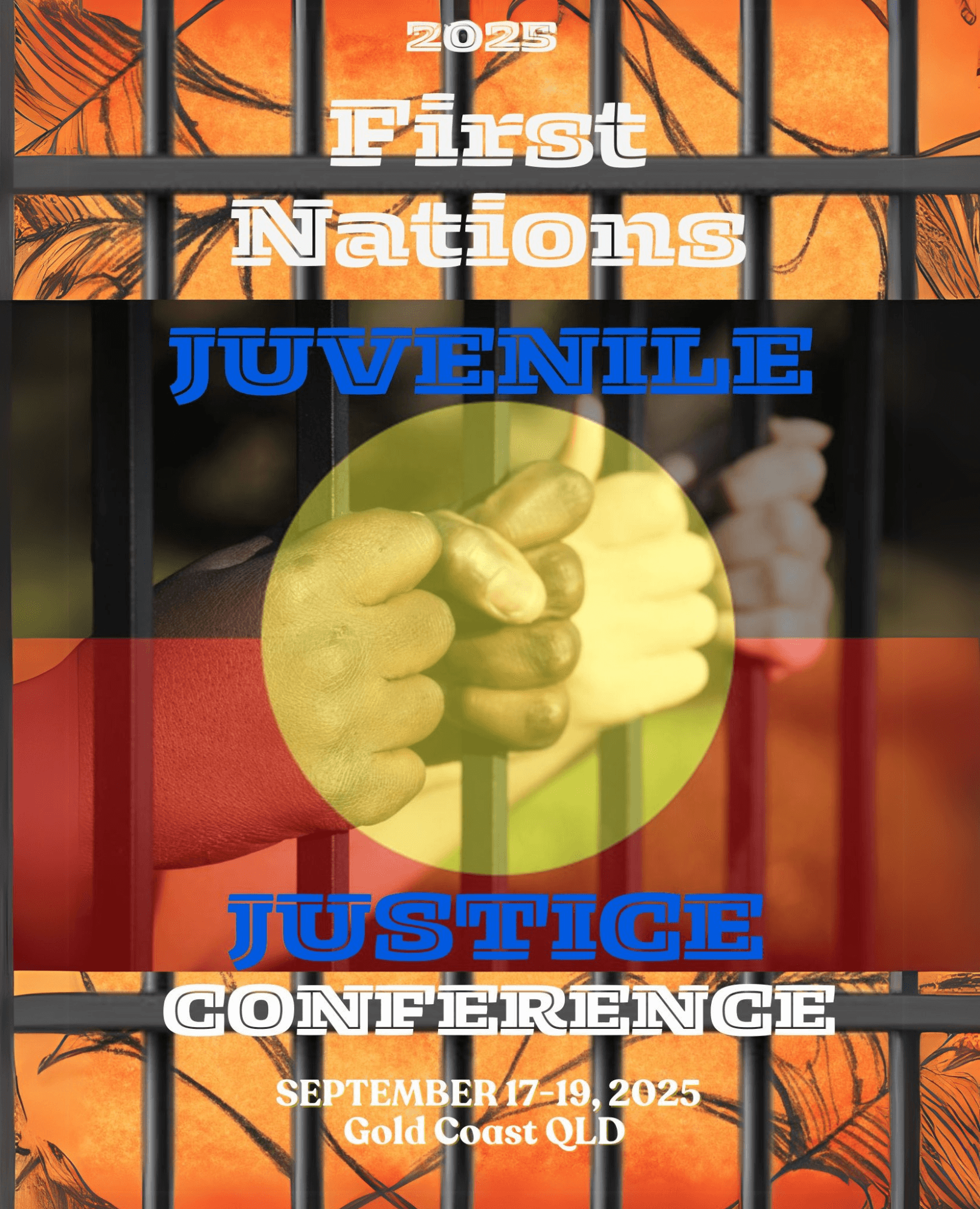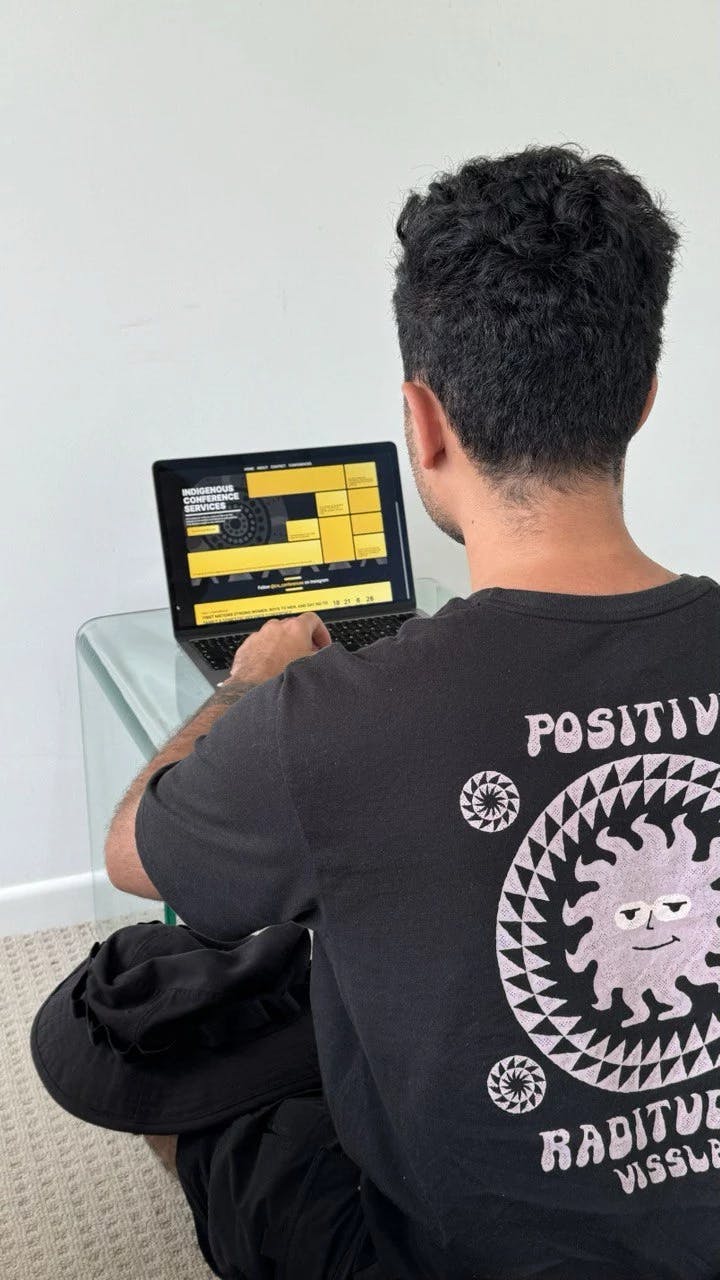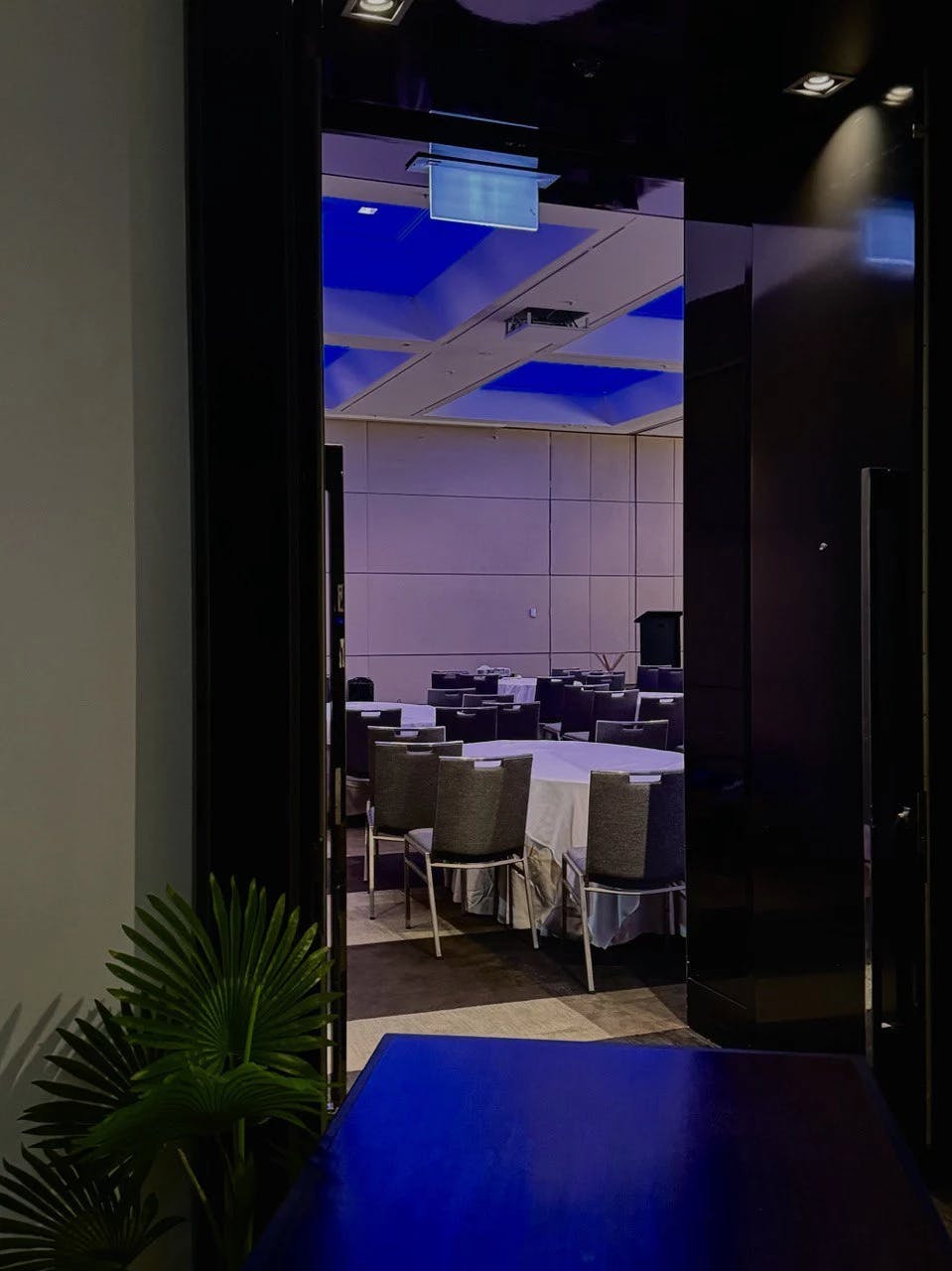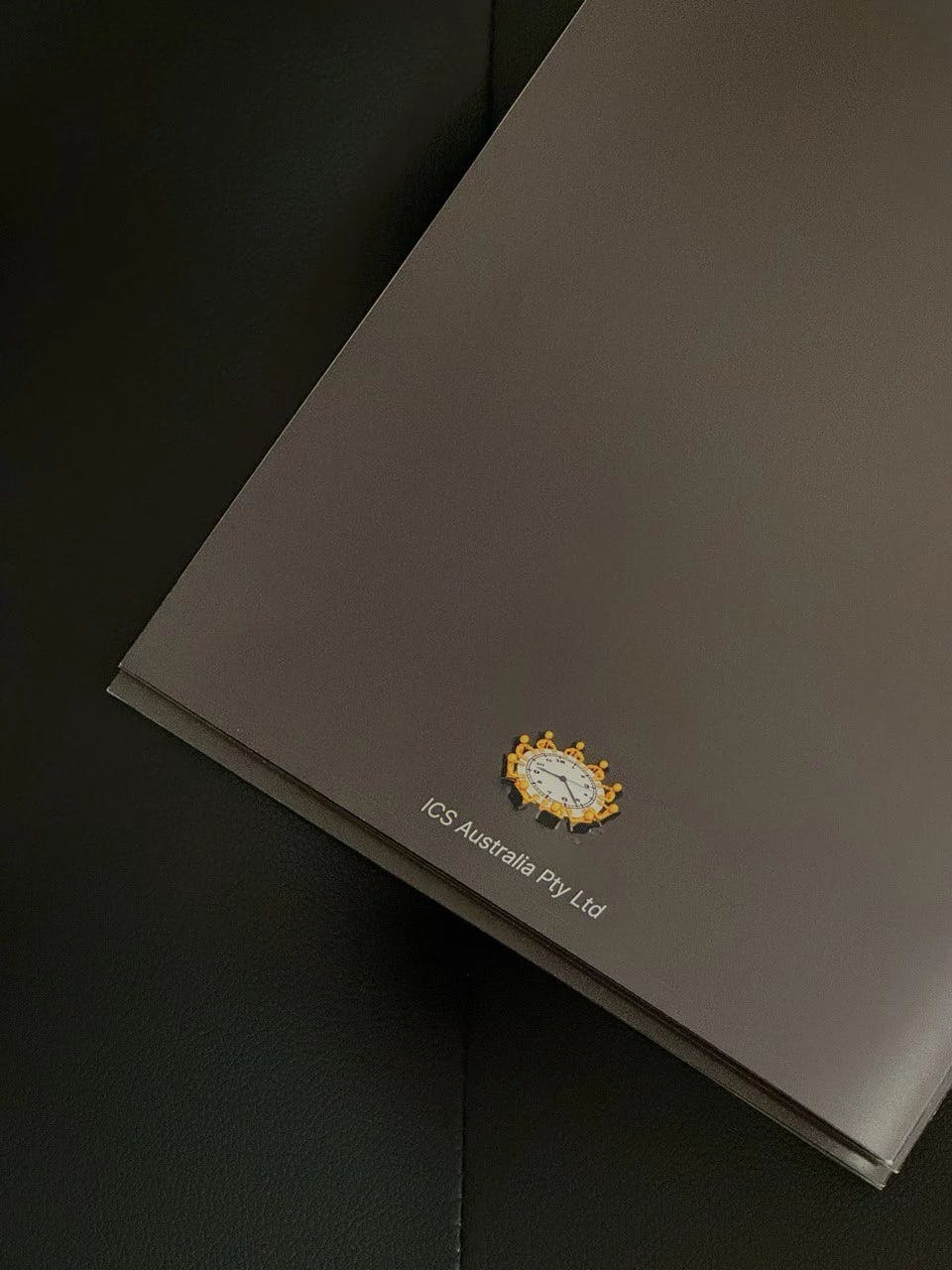ACKNOWLEDGEMENT TO COUNTRY
In Australia, the protocol is to recognise the Traditional Owners of the land to which we are gathering. Therefore, all presentations must begin with an acknowledgement to country and to local Traditional Elders: “We wish to acknowledge and respect the traditional custodians whose ancestral lands we are to meet upon. We acknowledge the deep feelings of attachment and relationship of Aboriginal peoples to Country. We also pay respects to the cultural authority of Aboriginal peoples visiting / attending from other areas of Australia who are present here”.
Indigenous Conference Services acknowledges and pay our respect to the Traditional people of the Country. "Welcome to Country" ceremony and "acknowledging the traditional custodians" of the land shows respect for Aboriginal people as Australia's First Peoples. Ceremonies and protocols are a fundamental part of Aboriginal cultures.
THE CONFERENCE
The National Indigenous Juvenile Justice Conference aims to empower youth through cultural resilience, drawing on traditional knowledge and practices for healing and justice. It seeks to foster dialogue on reconciliation, advocate for systemic reform to address the overrepresentation of First Nations youth in the justice system, loss of cultural values, norms, dispossession, colonisation and the forced removal of Indigenous children from their families and communities were believed to be contributing factors of social and economic disadvantage of Indigenous peoples who come in contact with the criminal justice system. This year’s conference will explore trauma-informed, prevention-focused approaches to provide First Nations youth with the support and opportunities needed for positive futures.
THE CONFERENCE AIMS & OBJECTIVES
The conference objectives are designed to empower and stimulate open and frank discussion through the sharing of traditional knowledge and strengths to overcome adversity and fosters partnerships between governments, service providers and First Nations communities. It's designed to empower and stimulate discussion in a positive manner that can and may be used back in our work environment to further develop strength, unity and education. Moreover, one of the most powerful objectives that Indigenous peoples have is the strength to overcome adversity through the power of sharing knowledge and therefore the conference will attempt to foster all of the issues set out in this conference.
Reduce First Nations youth incarcerations
Provide an open and frank forum for discussion
Lend support to individuals and families working in the Justice system
Help establish and grow a worldwide network and resources through information sharing
Show that there are great efforts being made to make change
Exchange information regarding the successes of community projects
To bring together all sectors of the community as a united voice to say there are alternatives to juvenile incarceration
Bring together researchers, service providers, government agencies, policy makers/developers & organisations
Networking and lend support to individuals and groups working in the justice system
To foster partnerships between Government, Service Providers, Community groups and individuals
THE CONFERENCE THEME
This year’s conference theme, "Healing, Empowerment, and Reform: Culturally Grounded Solutions for First Nations Youth in Juvenile Justice," highlights the need for culturally informed, community-driven approaches to support First Nations youth in the justice system. It advocates for systemic reform, focusing on healing, empowerment, and prevention, while drawing on traditional knowledge to break the cycle of incarceration.
HISTORICAL BACKGROUND
Before European settlement and the introduction of foreign diseases, alcohol and other detriments, the Aboriginal & Torres Strait Islander culture was vibrant and strong with spiritual and family lore that were guiding principles to a way of life that existed for centuries. It has now succumbed to bright lights and the trappings of modern day society.
Throughout the decades we have seen the erosion and destruction of our language, customs and spiritual well being. The dynamics of contemporary Australia showing seventy percent (70%) of Indigenous people live in an urban setting. A question we ask you to consider - What if Captain Cook didn’t land on the shore of the East Coast of Australia, but in a far more remote area? Would Australia’s east coast be what it is today?
The backbone of our existence is family, custom & spirituality. During group discussions we would like to explore past and present experiences, leading into future strategies & goals to empower our people in our communities. We believe that through sharing of experiences and knowledge, we become stronger as a collective. The opportunity to discuss juvenile justice issues in an open, transparent and culturally sensitive forum has become a vital networking source to develop collaborative approaches for the betterment of Indigenous people's overall wellbeing.
CONFERENCE STATEMENT
Indigenous peoples, nationally and internationally, will come together in an environment that can lead to the sharing of information via their cultural and historical values. This conference is designed to inspire and enable Aboriginal and Torres Straits Islander peoples, services and other partners to take control, step up and take action to the next level, to ensure the rights and self determination of First Nations Peoples are upheld. To honour our Indigenous men, women, youth and the whole family – their strength and resilience – by listening to their stories and strategies, learning from their experiences and committing to systemic change to protect the rights of our children, families and cultures. To honour also the knowledge of our men, Elders and wisdom of our cultural responses, sharing successes and struggles to chart effective, evidence-informed ways forward. The conference provides a forum to discuss solutions by Indigenous peoples and to connect and acquire knowledge from each other to heal the spirit, heal the earth, and sustain cultural practices for this generation and for the future generations to come.
WHO SHOULD ATTEND
First Nations Leaders and Elders – To share traditional knowledge and cultural perspectives that can guide reform and healing practices in the juvenile justice system.
Juvenile Justice Professionals – Including judges, lawyers, probation officers, and social workers, who are working directly with young people in the justice system.
Policy Makers and Government Representatives – To engage in meaningful dialogue about systemic reform and advocate for changes to current policies affecting First Nations youth.
Indigenous Youth Advocates and Activists – Those working on the frontlines to support and uplift First Nations youth and advocate for their rights within the justice system.
Community Leaders and Organizations – Especially those who are implementing grassroots programs for youth diversion, rehabilitation, and prevention.
Academics and Researchers – Experts in juvenile justice, Indigenous studies, social work, and criminology who can contribute evidence-based insights and research findings.
Healthcare and Trauma Professionals – To discuss and develop trauma-informed care practices for youth involved in the justice system.
Educators and Mentors – Those involved in First Nations youth education and mentoring programs, focusing on prevention and personal development.
Legal and Human Rights Organizations – Groups working to protect the rights of First Nations youth and promote fair treatment within the justice system.
Philanthropic and Funding Bodies – Organizations that support initiatives aimed at improving the juvenile justice system for First Nations youth and funding reform initiatives.
CONFERENCE AGENDA
Disclaimer: This conference agenda is subject to change without prior notice to ensure a smooth flow of conference proceedings.
🖤💛❤️ DAY 1 – Wednesday, 17 September 2025🖤💛❤️
8:00 AM – Registration Arrival, registration, and meet & greet
8:30 - 12:30 PM - Pre-Conference Masterclass: Indigenous-led trauma informed care and suicide prevention (Optional) Dr. Amber Logan & Dr Joe Stone Health Psychologist & Clinical Psychologist "Indigenous Development Specialists/ Cultural Wise NZ/USA
1:30 PM - 5:00 PM - Pre-Conference Workshop Compassionate Community-Led Program: A human-centric codesign workshop in responding to crisis Maria Callaghan Chairperson Compassionate Communities Health Connectors Network in Queensland QLD
🖤💛❤️ DAY 2 – Thursday, 18 September 2025🖤💛❤️
8:30 AM – Registration Arrival, registration, and meet & greet
9:00 AM – Keynote Session Master of Ceremony: Welcome & Safety Announcement Joedie Saunders Artist, Advocate, Proud Biripi Woman Jodie Lawler Collection NSW
9:15 AM - Keynote Session: Welcome to Country & Traditional Performances Sofia & Aunty Erica Eurell Tradition Custodian Dreamtime Artistry Gold Coast QLD
9:30 AM - Keynote Session: Formal Opening Address Uncle Thomas Callaghan, CEO Indigenous Conference Services QLD
9:45 AM - Keynote Session: Decolonizing Justice: Transforming Legal Responses to Domestic Violence in Indigenous Communities Dr Amber R. Logan & Dr Joseph Stone Health Psychologist & Clinical Psychologist "Indigenous Development Specialists/ Cultural Wise NZ/USA
10:30 AM – Morning Tea & Networking
11:00 AM -Keynote Session: The Love Bites Program: Young people are the key to sustained cultural change to prevent violence. Sarnia Ralston Project Manager National Association for Prevention of Child Abuse & Neglect (NAPCAN) QLD
11:45 AM -Keynote Session: Building Resilient Communities: Strategies for empowering communities to protect children and support families Thomas Allsop Chief Executive Officer PeakCare Queensland QLD
12:30 PM– LUNCH BREAK - Elders & Youth Sharing Tables
1:30 PM – Keynote Session: Creating a safe space for survivors to reconnect and support their recovery Rebecca Masterton & Dr. Gina Masterton Master of Professional Psychology | Behaviour Support Practitioner Southern Cross University QLD
2:15 PM - Keynote Session: Building Effective Partnerships Between Survivors and Advocates Felitciana Zsha' Mirzze ,Contributing Writer /Founder/CEO and Founder ,About Time Media /Trauma Recovery Network / Neuro Vitality Pty Ltd VIC
3:00 PM – Afternoon Tea and Networking
3:30 PM - Keynote Session: Engaging Children in Alternative Activities Deanne Carson, Founder & CEO, Body Safety Australia VIC
4:15 PM - Keynote Session Empowering Indigenous Youth Mark Roberston Founding Director , MPOWER & One Vision Productions NSW
6:30 PM - Conference Networking Dinner: Conference Dinner Cruise Aboard Spirit of Elston (Seaworld Cruises)
🖤💛❤️ DAY 3 – Friday, 19 September 2025🖤💛❤️
9:00 AM – Keynote Session: Strategies and Solutions for Effective Child Protection Sarnia Ralston & Joshua Morris, Queensland Manager & Youth Speak Out Co Chair NAPCAN QLD
9:45 AM - Keynote Session: Survivors at the Center: Amplifying Voices, Shaping Solutions Simone O'Brien Motivational Speaker/Director/Ambassador/Patron Grampians Community Health, Australia SAY NO MORE, RiseUP VIC
10:30 AM – Morning Tea & Networking
11:00 AM -Keynote Session: Building Community-Led Solutions to Domestic Violence Christine Robinson, Chief Executive Office "Wirringa Baiya Aboriginal Women’s Legal Centre NSW
11:45 AM -Keynote Session Designing the Future – Healing Systems & Empowered Communities Lucas Williams, CEO & Founder - Gan'na Healings Programs NSW
12:30 PM– Lunch Break & Networking
1:30 PM – Keynote Session: Supporting Infant and Child Mental Health in Early Learning: Trauma-Informed Inclusion Strategies Alma-Jane O’Donnell National Manager of Child and Family Services Goodstart Early Learning SA
2:15 PM - Keynote Session: Gender Equality – Fostering resilience and gender empowerment Dr Shweta Goyal Educator, Author, Researcher, and Motivational Speaker Far North Queensland Diverse Communities Council, Inc. QLD
3:00 PM – Afternoon Tea and Networking
3:30 PM - Keynote Session: Global Success Stories in Child Protection and the lessons learned Phil Doorgachurn General Manager of Strategic Child Safeguarding Initiatives Australian Childhood Foundation NSW
4:15 PM - Keynote Session Early Childhood, Youth Wellbeing and Reducing Out-Of-Home Care Joanne Roff Executive Manager Service Delivery ,IFYS QLD
5:00 PM - Interactive Group Session:Reflections & Group Discussion on Key Takeaways Maria Callaghan Managing Director ICS Australia QLD
END OF THE CONFERENCE
Why Attend
This conference presents a unique opportunity for delegates to participate in a positive environment that is dedicated to the sharing of information and the empowering of all who attend. In our everyday working environment the day to day stresses of our positions tends to limit us in expanding our knowledge and networking. Whether you work at a community level or at governmental level the opportunity to network and gain contacts outside of your local region tend to be limited, this is why this conference will be so valuable to participants.
BENEFITS OF ATTENDING FOR THE EMPLOYER
As an employee, we are asked to present valid reasons why we should attend. Listed below are valid points that can be raised with your employer to justify your attendance: Staff attending conferences regularly tend to become long term employees. An event such as this adds to the positive morale of staff.
- Staff attending conferences regularly tend to become long-term employees.
- An event such as this adds to the positive morale of staff.
- Conferences are a great way of providing ongoing training.
- Provides the opportunity to further enhance the organisation's knowledge base.
- The opportunity for saving organisations money because of the short duration of the event.
- Allows delegates to showcase the organisation nationally and internationally.
- May provide organisations with new ideas.
- Gives organisations a showcase and voice at a national level.
- Provide an opportunity to evaluate various programs.
- Because this event is conducted over a short period, staff are only absent for a minimal number of days.
CALLING FOR PAPER
To ensure grassroots community programs are highlighted, no less than 50 per cent of the conference proceedings are and is devoted to community groups. If your paper is selected, you may have more than one presenter to present your paper. However, only two presenters will be entitled to the registration discount. If you are chosen to present at the conference, your paper will form part of the conference proceedings and be distributed at the conclusion of the event with all other presentations.
Guidelines in Submitting Paper:
- Papers should not contain offensive language and take into account cultural sensitivities of Australian first nation people.
- Papers must treat the themes in a manner that contributes to further discussion of conference aims.
- Conference papers must be presented in the finished format not less than 60 days prior to the event.
- Papers that are not chosen in the first round may be resubmitted in the second round.
- Papers MUST be submitted in Microsoft Word format. Papers in other formats will NOT be considered.
- Authors of papers presented at the conference will be formally notified of their acceptance in writing.
- A registration fee of $850 will apply to all persons submitting papers, payable within 7 days upon notification of acceptance.
- Papers should explore ways in which the themes show up in the philosophy of the conference.
- All papers must be presented in a positive and informative light.
- To submit a paper, please complete the online form at this link: SUBMIT A PAPER HERE.
- Conferences are a great way of providing ongoing training and provide the opportunity to further enhance the organisation's knowledge base.
- Allows delegates to showcase the organisation nationally and internationally.
- May provide organisations with new ideas and gives organisations a voice at a national/international level.
- Provides an opportunity to evaluate various programs.
- Because this event is conducted over a short period, staff are only absent for a minimal amount of time.
GUEST SPEAKERS
The event is blessed with a kaleidoscope of guest speakers, sharing stories, successes and challenges they’ve overcome, presenting great opportunities and inspiration for delegates to participate in an event that is devoted to the sharing of Culture, Empowerment, Education & Networking. Drawn from a variety of cultural backgrounds, professional careers, and grassroots community commitments, this year’s conference speakers are the difference between an ordinary and extraordinary event; one that is soon forgotten and one which lingers in attendees' memories, a source of tremendous benefit long after the conference is over.
REGISTRATION
Register early to get a discount! Please note that registrations are set out in an affordable way for organisations, which changes on a monthly basis. Hence the earlier you register, the more savings for your organisation. Registration fees include all-day access to the event, available conference papers, daily lunch, and refreshments for registered delegates only. Fees do not include travel costs or accommodation. Registration fees must be received within 7 DAYS from being issued an invoice. Otherwise, bookings will not be considered. To register, please click on the registration button and complete the form. Upon receipt of your completed registration form, we will email you the tax invoice.
SPONSORING THE CONFERENCE
Flexible sponsorship packages are available. Sponsorship opportunities are only open to businesses and private enterprises, not individuals. To showcase your organisation to all conference delegates, ICS has developed hassle-free promotional opportunities and sponsorship packages according to your budget and tailored to your organisation’s needs.
- Gold Sponsorship ($10,000) includes: Keynote session or Break-out sessions, Waived registration fees for your selected staff, Complimentary seats at networking conference dinner, Complimentary display table & USB with photos for reporting purposes.
- Silver Sponsorship ($7,000) includes: Keynote session, Waived registration fees for your selected staff, Complimentary seats at networking conference dinner, Complimentary display table & USB with photos for reporting purposes.
- Bronze Sponsorship ($5,000) includes: Break-out Session, Waived registration fee for your selected staff, Complimentary Display Table & USB with photos for reporting purposes.
To sponsor the conference, please contact us. Indigenous Conference Services (Australia) will be of further assistance in tailoring your sponsorship arrangement. Please phone us on +61 4557 76 668 or send us your expression of interest to admin@icsconferences.org.
CONTACT US
For more information or inquiries, please reach out to us at the following contact details:
- ICS-MEES Pty Ltd
- Indigenous Conference Services (Australia)
- Postal Address: P.O. BOX 702 EDMONTON LPO QLD 4869
- Web: www.icsconferences.org
- Email: admin@icsconferences.org
- Phone: 07 40009111, +61 4557 76 668




